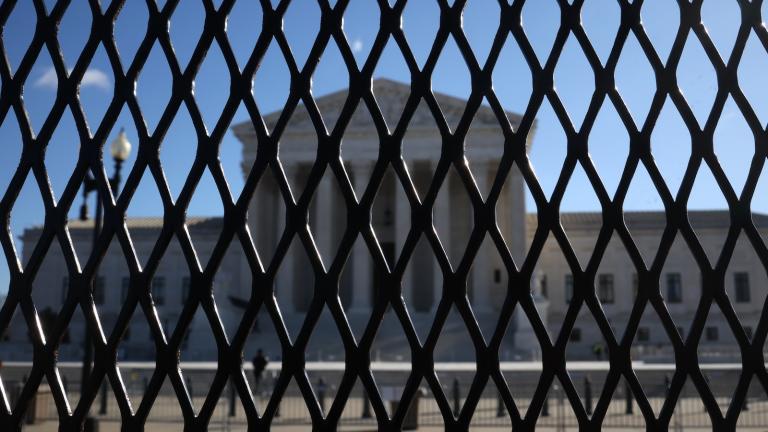 Noooooo!To understand this moment in politics, just ahead of the incoming GOP-weighted Congress, it’s worth revisiting Ryan Lizza’s post-mortem on the climate bill’s slow death in the Senate that The New Yorker published in October. In that piece, Lizza shows how the climate bill’s Senate sponsors twisted themselves into pretzels to win support from the fossil-energy industry. They stuffed the bill with industry-friendly goodies like a farmer hand-gavaging a goose for foie gras. Sufficiently fattened, industry magnanimously proffered its support. (Grist’s David Roberts led a great chat with Lizza here a few months ago.)
Noooooo!To understand this moment in politics, just ahead of the incoming GOP-weighted Congress, it’s worth revisiting Ryan Lizza’s post-mortem on the climate bill’s slow death in the Senate that The New Yorker published in October. In that piece, Lizza shows how the climate bill’s Senate sponsors twisted themselves into pretzels to win support from the fossil-energy industry. They stuffed the bill with industry-friendly goodies like a farmer hand-gavaging a goose for foie gras. Sufficiently fattened, industry magnanimously proffered its support. (Grist’s David Roberts led a great chat with Lizza here a few months ago.)
To what end? The bill collapsed unceremoniously. Its demise negated a similar effort in the House, which had narrowly passed its own industry-approved climate bill a year before.
Message: In the first half of Obama’s presidency, passing progressive legislation was devilishly difficult — even after abject sell-out. The Democrats desperately try to appease what ever industry might be affected by a given piece of legislation, hoping to entice Republican support. And the Republicans, determined to deny Obama any semblance of victory, do their best to pull the rug out. The health care and stimulus acts, as woefully compromised and inadequate as they were, only barely managed to sneak their way through the thickets of Democratic fecklessness and GOP obstructionism.
On the food front, it’s been the same with the Child Nutrition Reauthorization, whose passage took baby steps to tackle a massive festering problem: dreadful school lunches.
And so we come to the puzzling apparent demise of the Food Safety Modernization Act, the much-obsessed-about and ill-starred S. 510. It went on life support last night after the Senate failed to pass a comprehensive bill to fund the government through September, into which S. 510 had been ludicrously tucked. Food Safety News’ Helena Bottemiller reports that the bill’s fate is now “uncertain.”
It has one final hope. With a deadline set for Saturday at midnight, the Senate’s two caucuses must now scramble to cobble together a short-term funding bill that will get the government through the new year, when the incoming Congress will have to grapple with the budget question. It’s possible, Bottemiller reports, that said agreement could include passage of the food-safety bill.
Will it? According to Friday morning report in The Hill, Democrats are trying to salvage the bill, but Republicans are vowing to block its inclusion in the temporary budget bill. I don’t think they care one way or another about food safety. They just don’t want the president to look good. If their effort succeeds, the bill dies.
Let’s review. The House has now passed it twice — the first time, in stronger form — and the Senate approved it by margin of three-to-one. The president supports it. The biggest players in the food industry support it. Most sustainable-ag groups support it. Now it dies on the Senate floor?
I have no illusions that the bill would rein in the destructive practices of the food industry or fundamentally alter the risks looming within the shadows of the food system’s giantism. Like other progressive legislation during the first half of Obama’s term, it at best represents a baby step in the right direction. But with more crazies entering Congress, and Obama lurching rightward to bolster his ‘12 prospects, it’s the best food-safety bill we’ll see for a while.
For me, Washington’s monumental dysfunction only underscores the need for on-the-ground, local organizing. Hit the bricks, everyone!




